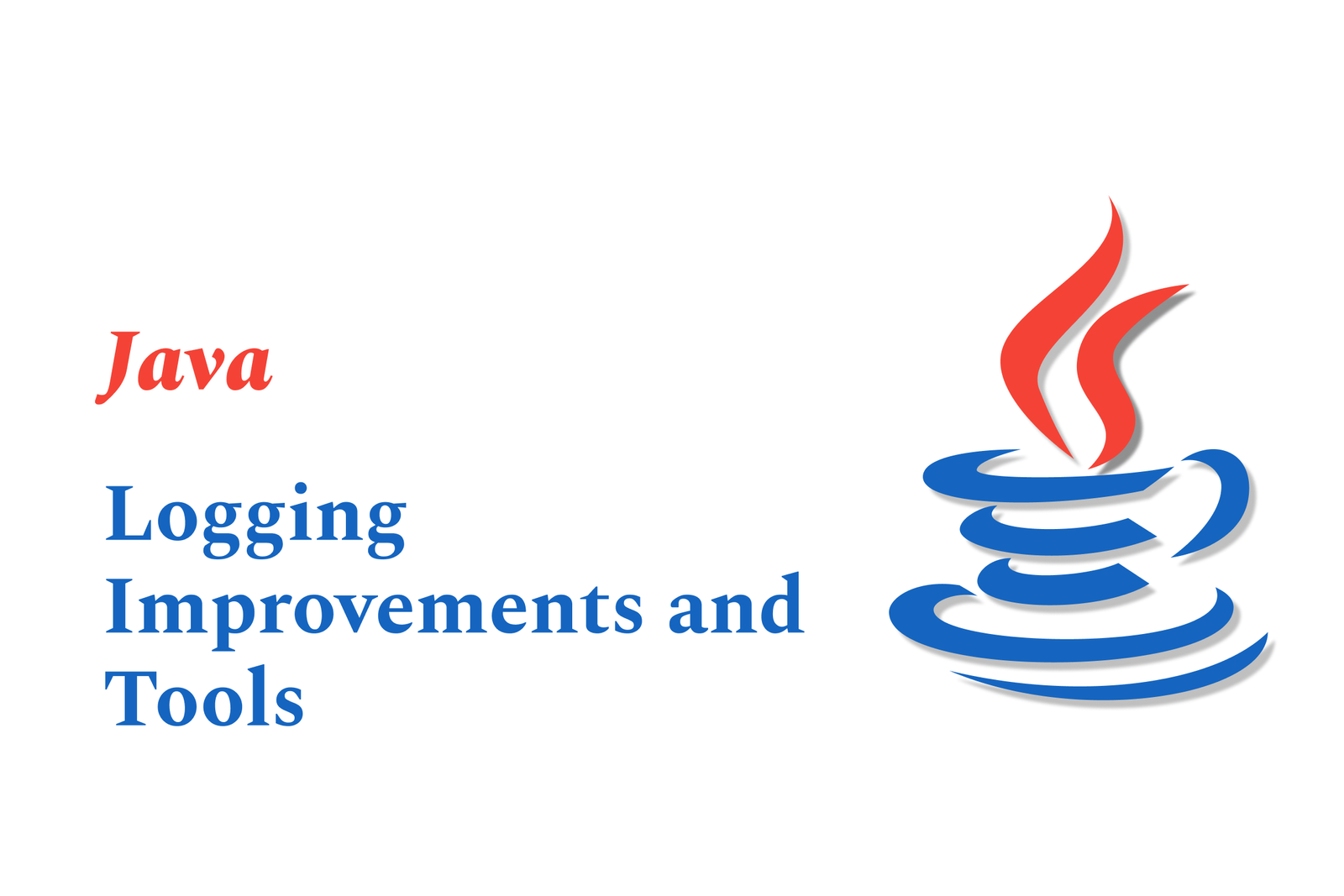Java Logging Improvements and Tools
Java logging has evolved from the basic java.util.logging API to powerful tools like Apache Log4j 2, offering enhanced configurability, performance, and flexibility. These improvements help developers better monitor, debug, and optimize applications with advanced features and integrations.
Java Logging Improvements and Tools
1 ) Overview of Java Logging Technology
The Java Logging APIs, available since Java SE 5 in the package java.util.logging, are designed to facilitate application monitoring and maintenance by generating logs helpful for users, administrators, and developers. These APIs capture critical runtime information such as security breaches, configuration errors, performance issues, and software bugs. The logging framework supports outputting plain text or XML log records to various destinations including memory, files, consoles, and network sockets, and can integrate with existing system logging services.
2 ) Common Challenges with java.util.logging
Despite its inclusion in the standard Java library, many open source projects avoid using java.util.logging due to perceived complexity and limitations. While it works adequately in many projects, some developers prefer alternative logging frameworks that offer more features or easier configuration.
3 ) Popular Logging Tools: Apache Log4j 2
Apache Log4j 2 is a widely adopted, robust Java logging framework offering many enhancements over java.util.logging. It provides rich features such as advanced configuration options, support for asynchronous logging, various built in appenders, custom log levels, and integrations with other logging APIs. Log4j 2 also supports migration from older versions and interoperability with Apache Commons Logging using bridges and adapters.
4 ) Logging AWS SDK for Java Calls
The AWS SDK for Java uses Apache Commons Logging as an abstraction to plug in different logging implementations like java.util.logging or Log4j. Although the SDK itself doesn't bundle Log4j, users can integrate it by adding the Log4j JAR to their classpath and setting up proper configuration files (log4j.properties). The SDK logging hierarchies “com.amazonaws” and “org.apache.http.wire” can be independently controlled for filtering logs such as errors or request/response details.
5 ) Enhancements and Tools for Tuning JVM Based on Logs
Recent research explores using machine learning to improve Java Virtual Machine (JVM) performance by analyzing Garbage Collection (GC) logs. By extracting memory usage and GC pause metrics from these logs, ML models can predict optimal JVM memory flag settings to enhance performance automatically. This approach represents an emerging direction leveraging logging data not just for debugging but also for intelligent runtime optimization.
Summary:
Java's logging ecosystem comprises the built in java.util.logging API and numerous advanced tools such as Apache Log4j 2 that offer better configurability and features. While java.util.logging is functional, alternatives dominate in modern projects. Integration with logging frameworks like Log4j enhances SDK usability, like that of AWS SDK for Java. Moreover, innovative uses of log data—including ML driven JVM tuning—signal a growing sophistication in how logging supports both debugging and performance optimization in Java environments.
https://justacademy.in/news-detail/real-time-database-plugins-in-flutter
https://justacademy.in/news-detail/ai-powered-ui-generation-in-flutter
https://justacademy.in/news-detail/android-instant-apps-developments
https://justacademy.in/news-detail/android-accessibility-tool-advancements
https://justacademy.in/news-detail/java-code-style-and-formatting-updates
Related Posts
In 2025, top Angular libraries offer modern, feature-rich components and tools for building dynamic web apps. From powerful data grids to low-code platforms like UI Bakery, these libraries enhance development speed, UI design, and scalability, making them essential for Angular developers.
Migrating from AngularJS to Angular 17 involves gradually upgrading your app by running both frameworks together using tools like ngUpgrade, rewriting components in TypeScript, and adopting Angular’s modern architecture to enhance performance, maintainability, and long-term support.
Angular state management tools help organize and handle app data efficiently, improving scalability and maintainability. Popular options include NgRx for robust, RxJS-based patterns, and newer Signal Store solutions that offer simpler, reactive approaches integrated tightly with Angular’s latest features.
RxJS in Angular empowers developers to manage asynchronous data streams with powerful operators like `forkJoin`, `combineLatest`, and `zip`. Mastering these key operators in 2025 is essential for building efficient, reactive applications that handle complex event sequences seamlessly.
Angular performance optimization in 2025 focuses on improving app speed and responsiveness by using techniques like OnPush change detection, lazy loading, efficient data caching, and AOT compilation. These practices reduce load times, enhance user experience, and ensure scalable, fast Angular applications.
In 2025, Angular remains preferred for large-scale, enterprise apps with its robust, all-in-one framework, while Vue attracts developers seeking simplicity and fast development for smaller projects. Both frameworks excel, with choice driven by project needs and team expertise.
Angular Signals are a new reactive primitive in Angular 16 that enable fine-grained, efficient change detection by automatically tracking dependencies and updating only affected parts of the UI. They simplify state management and boost app performance, revolutionizing Angular's reactivity model.
Angular interview questions to prepare in 2025 focus on core concepts like components, directives, data binding, routing, and dependency injection, along with TypeScript mastery and latest Angular features to ensure strong practical knowledge for building scalable, efficient web applications.
AngularJS reached its official end of support in January 2022, meaning no further updates or security patches. To ensure app security and performance, developers should consider migrating to modern Angular versions or seek third-party long-term support options if immediate migration isn’t possible.
The Angular Roadmap 2025 highlights upcoming features focused on improving developer experience and performance, including zoneless Angular, Signals integration, enhanced Forms, async data handling, improved HMR, and expanded Angular Material/CDK enhancements, driving modern, efficient web app development.










